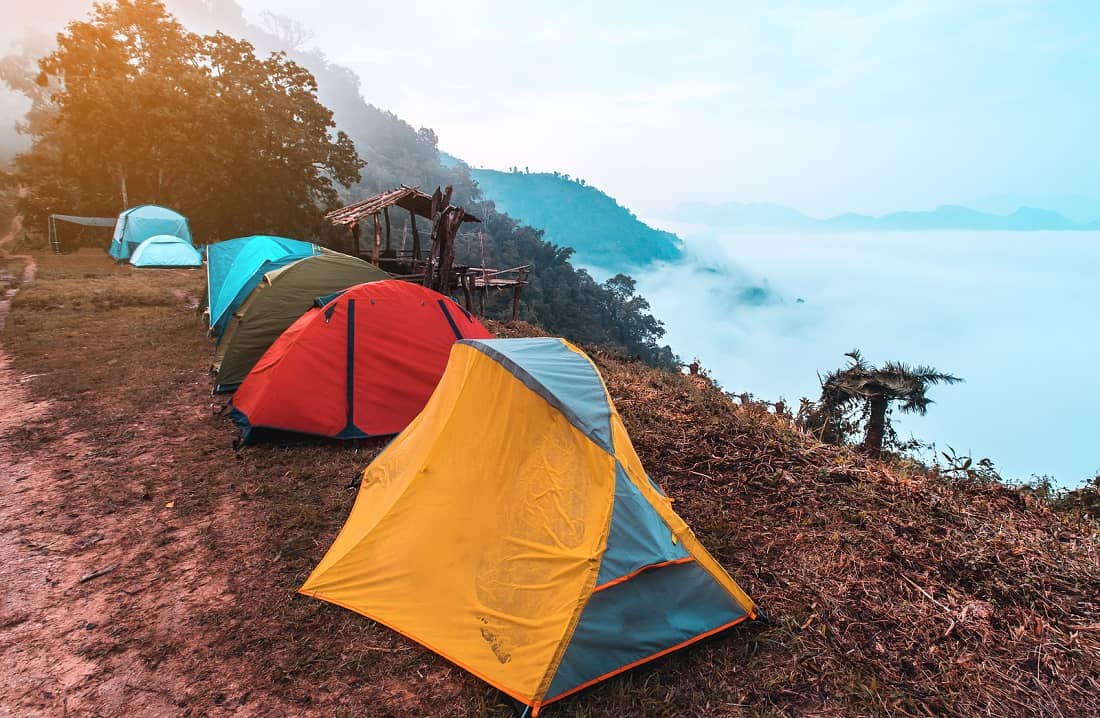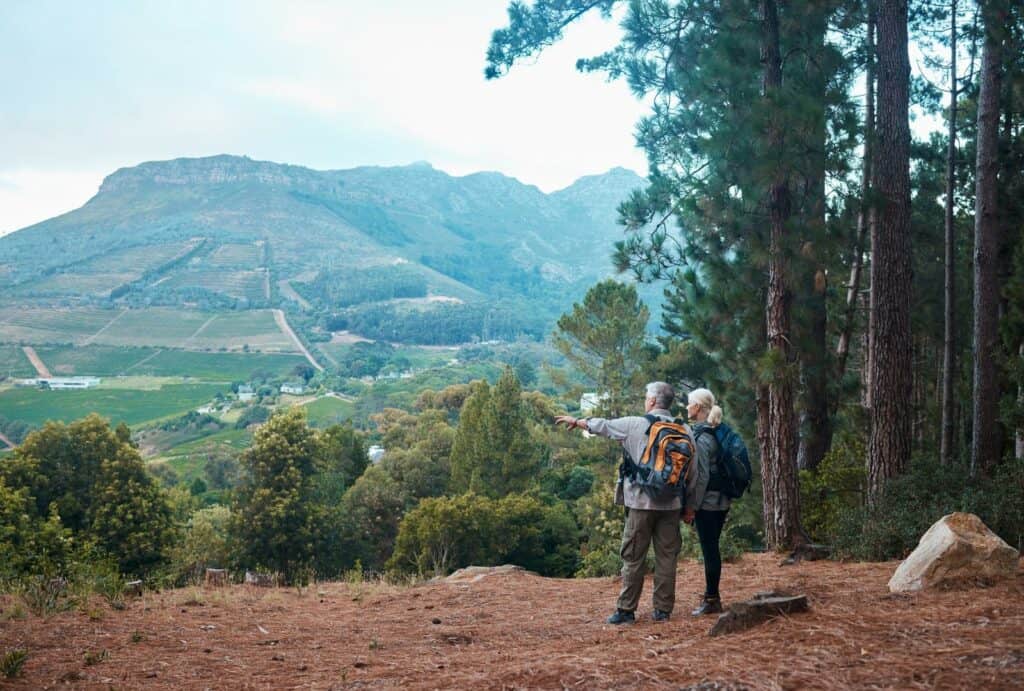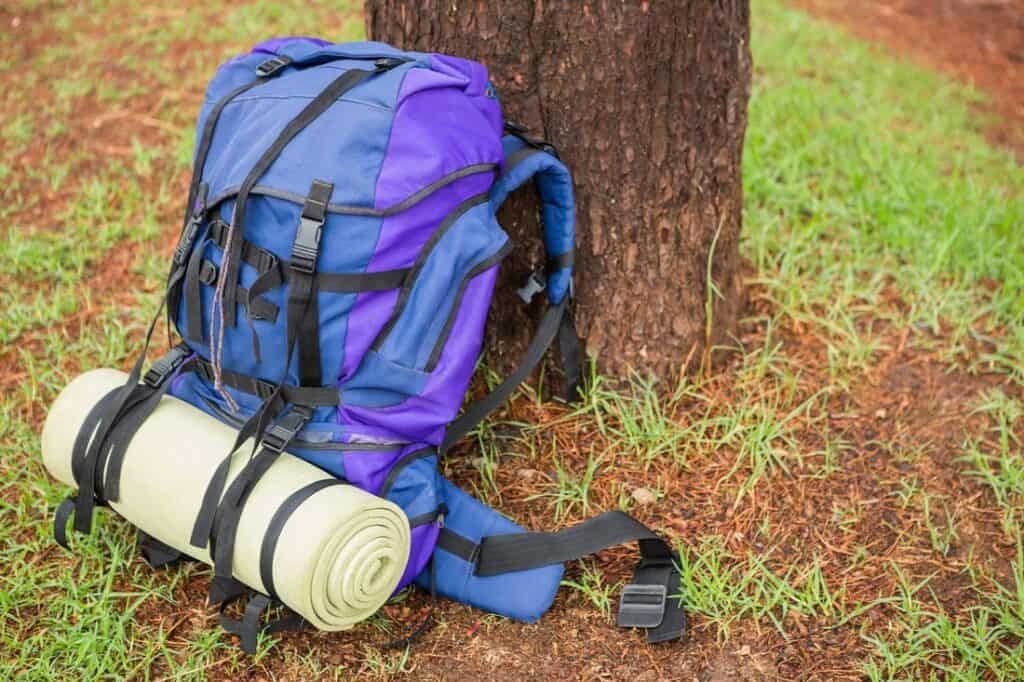Backpacking Tips: Ultimate Guide to Gear You Up for Your Next Adventure

Updated On: November 09, 2023 by Aya Radwan
Backpacking is a dream many of us have, but rather a daunting one, if we’re being honest. It is an adventure, no doubt, that combines the thrill of hiking with the views and excitement of camping. If this is your first time seeking backpacking tips online, it can get overwhelming; the experience truly is. However, nothing can go wrong with proper planning, and then your backpacking adventure becomes underway.
So, be prepared to haul that backpack; starry-filled night skies, rugged nature and grandeur mountain views await you. We bring you our top backpacking tips to get you all set for the ultimate outdoor adventure.
So, what backpacking tips have we got for you?
There are several general travel tips that you must follow whenever you’re on the move, whatever your means of transportation or movement is, by plane, by boat, by train or any other four-wheeler automobile. What we’re bringing you is a gentle reminder of these tips, in addition to our own recommendations.
General Backpacking Tips
If this is your first time to go backpacking, planning can feel overwhelming, if not intimidating. However, we’re getting you started with these general tips to ease you through the preparation.
Seek the advice of experienced backpackers
If you happen to know an experienced backpacker, then Horaay! You can ask their opinion about many things on the trip. From what route to follow to survival tips and how to enjoy your journey the most. Additionally, professional help is available online so you can search for the best tips to help you plan and enjoy your journey, or you can head to the local library and look for books about backpacking or hiking.

Pick an easy destination
For your first time, you wouldn’t want an exhausting destination to reach. If you’re hiking the entire trip and not travelling to the location, it’s best you pick somewhere accessible so you’re not worn out before the fun begins.
Go for a suitable, preferably easy route
If there are several possible hiking routes to your destination, it’s preferable you choose an easy one. Bear in mind that walking with a heavy backpack will draw on your energy and stamina, so you’ll be walking slower than usual.
Choose a well-established camp
When you’re set on your route for some time and will arrive soon at the destination camp, it’s good to choose one that’s well-established through the years. This means the camp will always have company and you’ll meet new and interesting people as well.
If you’re going up, choose a small elevation
The higher you go, the more difficult breathing is. Difficult breathing comes from exhaustion and lower Oxygen levels, so choosing a high latitude might not be the best idea if you’re a beginner. So, aim for a route with low elevation to avoid exhaustion.
Choose the right time (weather, heat, summer)
Always check the weather forecast before backpacking. If you’re going somewhere, the weather is mild and dry during summertime; then you’re all set for a great journey. However, if your destination has scorching summer heat and humidity, you might want to head there during autumn or even winter. If you’re going somewhere tropical, be aware of the heat, humidity and unexpected rain, all during summer.
Postpone bringing along furry friends and kids
If this is your first backpacking experience, you might want to test things out first. Travelling with pets and kids is tiresome, especially if you don’t know how the journey will affect them.
Choose experienced backpackers as company
It’s wise to go backpacking with a group rather than going alone, you know, Safety in Numbers! You will learn from their experience, and you can also share costs which is great if you’ve set a budget for the trip. However, don’t be too much of a beginner. You must have a background on the route you’re taking with the group, know how to navigate the road and use your gear. This will help you become an active member of the group.
Make sure to stay environmentally friendly
One of backpacking’s main benefits is reconnecting with nature, which you’d want to preserve during your trip. This will also serve as a wonderful learning experience for kids to find a connection with the world around them and help maintain it.
Backpacking Tips: Roaming the City
Backpacking isn’t all about hiking and spending your days in the wild nature; you can also go backpacking abroad or in another city, which adds to the thrill of the journey. Here are our tips for planning this unique experience.
Choose hostels that give free breakfast
Breakfast is the most important meal of the day, and if you’re on a tight budget, a free breakfast will save you money and fuel you up for the rest of the day. Check properly before choosing where to stay, the monetary difference usually isn’t much, and if it’s a few bucks, it will save you money in the long run. It’s also vital you memorise where your hostel is. Some older cities can have interwoven streets where you’ll easily get lost. Study the area properly and mark the place with famous landmarks, and if available, ask for a business card from the hostel.
Where are the toilets?
Most cities around the world have public toilets, and you can spot them easily on maps or on the street. Look for these toilets for a fresh splash of water and a better bathroom choice than the squatter in the middle of nowhere.
Free Wi-Fi?
There’s free Wi-Fi almost everywhere now, so keep your eyes peeled for public services, cafés or restaurants that offer it. This will help you download any additional information you need, maps or even contact your family.
Visit free local attractions
If you’re on a backpacking adventure, then you’ve taken the first step, and you can check it off your bucket list. Many local attractions and landmarks are free to visit, and you can make use of this advantage. There’s nothing wrong with spending some money within your budget limit; if you’ve come across someplace you’ve always wanted to visit or an activity you wanted to try, then why not?
Familiarise yourself with the culture
If you’re travelling abroad, it’s important to read about the history and culture of where you’re going. This will help you greatly in breaking the ice with locals, even if you can’t speak their language, because friendliness is a universal language. Additionally, this will add extra enjoyment to your trip and be better prepared for it. Remember, if the locals open up to you, they will offer you food and advice as well.
Don’t be afraid to ask the locals for suggestions
Again, when you’ve familiarised yourself with the history and culture of the place you’re visiting, you’ll connect easily with locals. So, don’t be afraid to ask them for suggestions about everything, where to stay, what to do, where to eat or how to get somewhere.
Try street food
Street food is one of the best ways to fully submerge yourself in any culture. Food carts and stalls on the sides of the roads offer great local dishes for affordable prices. Some even offer hefty portions, which will keep you full for a good amount of time.
Use Public Transportation
Public transportation is the best way to get around when backpacking abroad. In some cities, all you need to do is buy a ticket which you can do several times and keep on you to use whenever you need. Other cities around the world require a public transportation card, which you can buy from a vending machine, and it gives you a specific number of times to use all types of public transportation, such as trains, trams and subways.
Backpacking Tips: Gearing up for the Adventure
Backpacking gear must be lightweight because you’ll be carrying it for some time. Some are meant for sharing, like tents and stoves, which will also mean carrying less.
Clothes
You needn’t buy special clothes for backpacking; hiking clothes will do, as long as they’re made of polyester or nylon. These fabrics dry fast and pull the moisture away from your body, unlike cotton, which absorbs fluids and takes a long time to dry. Additionally, bring long underwear to keep you warm at night, an extra pair or two of socks, a lightweight pullover, gloves and rainwear. Do not forget comfortable sports shoes, and they must be broken into to avoid blisters.
Gear and know how to use it
Your gear includes your backpack, tent, sleeping bag and sleeping pad. Your backpack shouldn’t be ultralight; this normally means it’s not well-padded, which will put weight on your back. Look for comfort on your hips and shoulders when it’s loaded with about 14 kilos of items.
There are two types of sleeping bags, a down fill and a synthetic one. We recommend a synthetic fill for your first backpacking trip for its versatility and affordability. Your choice of sleeping pads depends on your comfort; there are foam pads, self-inflating pads and insulated pads.

Stove and Kitchen Supplies
Stove options suitable for backpacking include a single-burner and a gas-canister stove. If you opt for the latter, do pack a bottle of suitable fuel. Check your local thrift store for utensils, pots, plates and cups enough for you to cook your planned meals and eat them.
Water Treatment Pitcher
You can have water on you at first, but a water treatment option can help you purify water from natural sources that face you, hence avoiding stomach issues.
Food
Avoid canned food; it adds weight, so you can opt for packaged dishes such as rice or noodles. Oatmeal bars are great for snacks and mixing together to make a hearty breakfast. If caffeine is a must, you can pack instant coffee and tea sachets. Make sure to plan your meals and pack them accordingly, food can be heavy, but you wouldn’t want to starve in the middle of nowhere.
Survival Backpacking Tips
Survival tips don’t only concern what to do in sticky situations but also include what to bring around for the journey to make it easier.
Bring your must-have medication
You must never travel without your medications, even if we’re talking about simple painkillers. If you have a medical condition, make sure to pack your necessary meds and inform your backpacking buddies of your condition. Pack painkillers, itching cream, antibiotics, an anti-allergen, treatment for mosquito bites, band-aids, fever medication and sunscreen.
Download Offline Maps or buy a detailed map of the area
There’s rarely a map of a place that isn’t available on map applications today, so it’s handy to download an offline version of them to navigate through the area. However, this advanced technology did miss a couple of spots, especially with under-travelled tracks and older cities; this is where a paper map comes in handy. It’s best to get a small map of the exact city or area you’re heading to, which will show all the detailed spots that map applications might have missed.
Inform your bank if you’re going backpacking overseas
If you intend to use your credit card overseas, you must inform your bank. If you don’t, the bank will deem any transactions suspicious and might suspend your visa.
Plastic bags are a must
You can use them to gather trash or put away clothes you can’t wear for any reason.
Be careful when you cook
This might sound tacky, but yes, be careful when you’re cooking in the wild. It’s easy to estimate the heat of boiling water, for example, when the kettle doesn’t whistle or turn off automatically. So, when you’ve got something on the stove, carry it with care, preferably squat beside the food when you’re eating or even sit on a rock on the ground rather than sitting on a high spot.
Listen to your feet
It’s tempting to keep going, especially if you’re travelling with experienced backpackers and they have more resilience. However, if your feet start to hurt, it’s best to stop and take a breather. Walking for a long time will cause the blood to gather in your feet, and if you don’t give it a chance to circulate well, it can be painful.
Stay hydrated
Whether you’re backpacking in hot weather or mild one, staying hydrated will help your body keep going and will prevent dehydration, which can wear you down early in the trip. Also, it’s best not to depend on natural water for hydration unless the route runs close to a river or lake.
Pack energy sources
Energy sources include a power bank, a headlight or torchlight and suitable batteries.
Keep money and copies of your passport and visa safe
Theft is possible on the road, so it’s safe to have these copies stashed in your backpack. Also, it’s best you keep your money in a small pocket inside your backpack.
Backpacking Tips: Mental and Physical Preparation
Backpacking can be overwhelming, but when you properly prepare yourself, you’ll definitely enjoy it.
Pack your bag when you’re relaxed
This goes for any form of travel; if you stress pack, you might pack too much or too little, and you can forget important items. Also, practice unpacking your backpack and how to use your gear.
Let your loved ones know where you’re going, when, and with who
Someone must know where you’ll be heading, the possible route to your destination and how to get in touch with you or someone from your group if you’re going with one.
How to physically prepare yourself for the trip
This is vital whether your destination is at a high altitude or not; you’ll need endurance either way. Cardio exercises and weightlifting will help prepare your muscles. You can also hike a similar route to your destination, wearing your backpack loaded with 14 kilos of items.
Mental entertainment
Unless you’re a master star gazer, we suggest bringing along a book, preferably just one, so as not to carry extra weight and card games. If you’re travelling with a group, card games are an excellent idea. It’s also preferable you opt for a Kindle or reading on your mobile phone, so you can save the book’s space for something else.
Photos are a must but we suggest a notebook
You needn’t bring a camera; you can use your phone. But a notebook can help you reconnect with your inner self and write down how the adventure is making you feel.
We hope our list of backpacking tips will gear you up for your next outdoor adventure, and always remember the Five P’s: Proper Planning Prevents Poor Performance.
Happy Backpacking!






